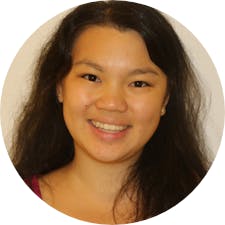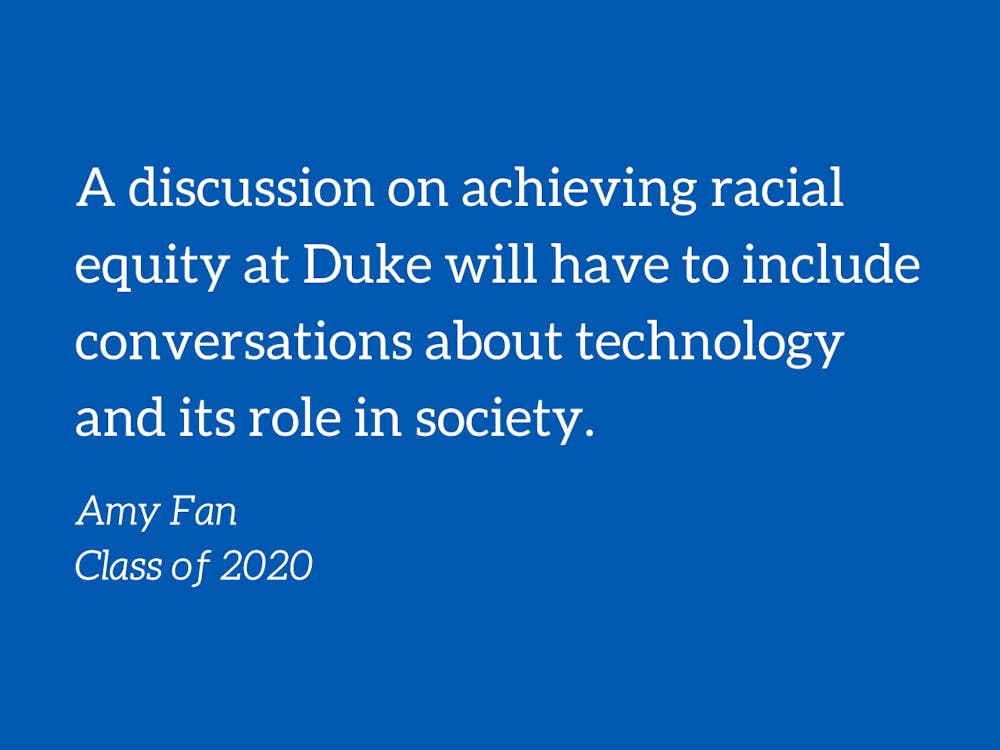Computer science is Duke's fastest-growing major, with 49 first and second majors in the class of 2011, to 252 in the class of 2018, more than a five-fold increase. It's also the major with the highest average salary immediately after graduation, according to data from the National College Scorecard.
But in past years, the tech industry has also been scrutinized for the lack of Black and Hispanic people in technical roles. According to American Community Survey estimates, the United States population is 18 percent Hispanic and 12 percent Black, yet a 2016 New York Times article finds that young computer science and engineering graduates with bachelor’s or advanced degrees are 8 percent Hispanic and 6 percent Black. That same article notes that technical workers at Google, Microsoft, Facebook and Twitter were on average 3 percent Hispanic and 1 percent Black.
Duke graduates from the classes of 2011 to 2018 are on average 9 percent Black and 6 percent Hispanic, already less than than the US population as a whole.
And within the computer science major the numbers are even more stark: Between 2011 and 2018, Black students and Hispanic students each made up 3 percent of computer science graduates.
What about gender?
A few (long) months ago, Paloma Rodney wrote a column about how informal groups perpetuated the culture of computer science being an all boy's club. She pointed out that the 16 member team of GTHC, a student-developed app, was all male, even worse than the 26% of women who make up the technical workforce in the US.
Paloma's observation is true: computer science is still predominantly male. In the class of 2018, 75 of the 252 computer science majors were women—just under 30 percent of the major. But this is still an improvement. In the class of 2011, there were 49 computer science first majors. Five were women, making up just over 10 percent of the major.
And given that there are racial and gender disparities, what do things look like at their intersection? Between 2011 and 2018, Duke awarded a total of 1067 computer science degrees. Of those, 9 went to Black women, and 10 were awarded to Hispanic women—less than 1 percent of all computer science majors for each demographic.
In the same time period, 321 white men and 257 Asian men received computer science degrees. More importantly, those numbers have been growing rapidly, while the number of Black and Hispanic women studying computer science has fluctuated between zero and four every year.
Organizations like Women in Technology and programs like DTech share resources and help women gain professional experience in the tech industry. But fewer resources at Duke address race-based disparities.
The Percentage Project, run at Duke by Women in Technology, has attempted to put numbers to some of these experiences. In a survey of undergraduate students, the project found that at Duke, women and non-binary students are less likely to feel comfortable asking questions during lecture and more likely to feel like they have to prove themselves before being taken seriously in academic settings.
What students choose to major in is just one part of a broader pipeline into tech—one that includes everything from the AP courses available to students in high school, to the people exposed to coding prior to Duke, to the dropoff as students progress within the major, to the professional choices students make even after receiving their degree.
And tech isn't just a lucrative career. Tech has increasingly relevant social implications along lines of race and gender that dictate what news and search we see, how crime and policing are enforced, the accuracy of facial recognition software and who systems are fundamentally designed for.
A discussion on achieving racial equity at Duke will have to include conversations about technology and its role in society.
Amy Fan graduated from Trinity in the Class of 2020 with a BS in Mathematics. This is part two of a series using data from the National Center for Education Statistics' Integrated Postsecondary Education Database System (IPEDS) to look at trends in majors at Duke.
Get The Chronicle straight to your inbox
Signup for our weekly newsletter. Cancel at any time.

Amy Fan is a Trinity senior. Her column, "fangirling," runs on alternate Thursdays.

